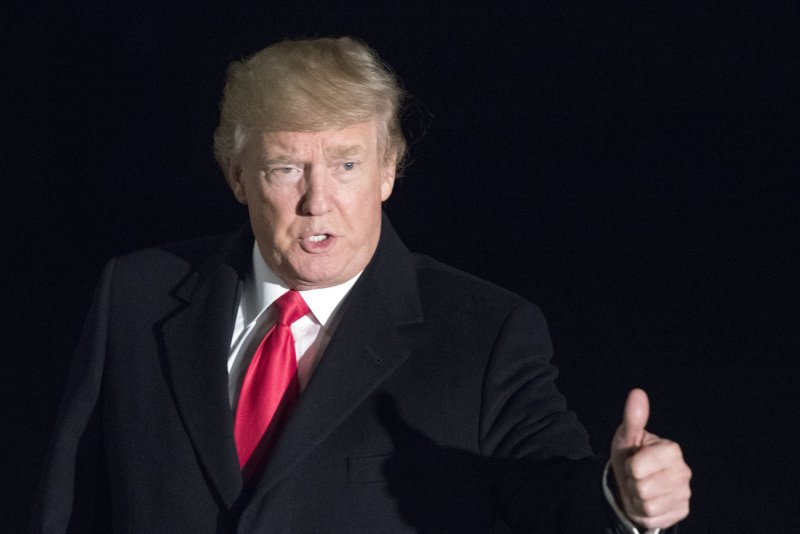United States President Donald J. Trump critiqued in Chinese state media after defending his trade policies at the World Economic Forum last week. Photo by Ron Sachs/UPI |
License Photo
Jan. 29 (UPI) -- After slapping a tariff on imported solar goods, and after the U.S. president's trade defense in Davos, China's official media said his policies will backfire.
Speaking at the World Economic Forum last week at the Swiss resort at Davos, U.S. President Trump put his "America First" trade policy, one that emphasizes bilateralism over multilateralism, on display.
"The United States is prepared to negotiate mutually beneficial, bilateral trade agreements with all countries," he said, including those involved in region-wide agreements like the Trans-Pacific Partnership.
Trump said that, with the largest economy in the world, as the United States grows, so too does the rest of the world.
Beating back pressure on U.S. manufacturers competing against cheaper imported goods, the president last week slapped a 30 percent tariff on foreign solar components, saying it would create jobs at home.
China, the second largest economy in the world after the United States, is leading the pack with solar photovoltaics, accounting for about half of the total global expansion. China also takes credit as a global leader in exports of solar components. Chinese renewable power company Trina Solar claims a quarter of the market share in India, the No. 6 economy, after setting a milestone for shipments.
An op-ed in China's official Xinhua News Agency said fair trade means beneficial trade.
"For example, through free trade, the American people bought more goods with high quality at a lower price while American companies gain more profit through investment in countries with a comparative advantage," it read.
An industry group in the United States opposing the tariff, the Solar Energy Industries Association, said only a small segment of the U.S. solar sector was actually geared toward making panels. The rest were working in sales or installation.
Speaking last week before U.S. lawmakers, Fatih Birol, the head of the International Energy Agency, said the United States was emerging as a leader in oil production, but China was taking the helm on renewables.
Oil remains central to the Chinese economy and China overtakes the United States as the thirstiest economy by 2040. That comes as U.S. shale oil production rivals that of Saudi Arabia this year.
Xinhua's editorial said the mutual benefits of an interconnected world requires direction from the world's leading powers, but suggested the United States under Trump was on the decline.
"The United States is like the boxer who vows to obey the rules when dominating the fight, but claims the rules must be changed when he is losing," it read. "This is not how a responsible world power should behave."















